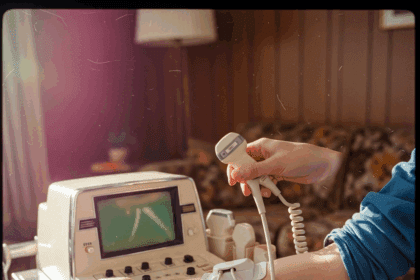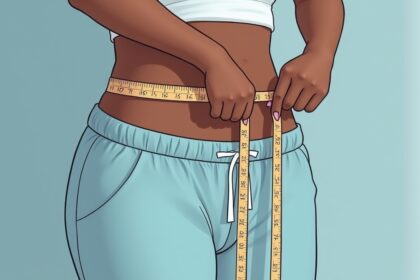By Dr. Thomas Fisher, PhD, LMHC, CSCS
Well, here it is… January 1st… The “Big One”… Time to make the change… No more “Mr. Nice Guy”… You’ve been waiting for months for this, and now it’s time to change everything…
(Or, is it?)
This is the strategy that many of us use to redirect the course of our lives. However, the results are, sadly, all too familiar. Research has shown that the plan usually fails. Your own experience probably reflects this. Dan Bennett, a marketing guru once said, “Nothing gives more false hope than the first three days of a diet”. The message is that on day four, you’re back to your old ways. Let me touch on several possible (probable) reasons your plans may get derailed. Before I do, I need to put on my “Shrink-Hat” to explain some of the psychology at work…
Exercise scientists have a way to describe the body in a state of balance. It’s called “homeostasis” (I know… I said “No Pin-Head” language… but, bear with me…!). Homeostasis usually refers to something physical, like hydration, or temperature regulation. When the body is out of “balance”, it will make the necessary internal adjustments to correct the problem. If we are thirsty, we drink water to improve hydration. Too much water, and we urinate. Too hot, we sweat. Too cold, we shiver. We’re all familiar with these processes, but we are far less familiar with social or psychological homeostasis.
We are all creatures of habit. We look for ways to make our lives easier and more predictable. We develop daily routines that serve to streamline our Activities of Daily Living (ADL’s). These routines are supposed to stop us from having to re-invent the wheel each and every day. To some, a vacation is a traumatic event, because you are in unfamiliar surroundings and need to think about satisfying every step during the stay. Sometimes, our routines get upset. Even minor deviations from our set pattern may be upsetting. A flat tire, a road closure, or the electricity going out may force us to get out of our comfort zone and adapt. One of the problems that I have seen in my Practice is the “comfort zone” may be built upon bad behavior. Despite evidence that the routine (read: “rut”) may not be beneficial, at least it is known and familiar. This fact typically overrides the fear or anxiety of the unknown. People will stay in dead-end jobs, or abusive relationships because the known beats the unknown.
Think about your own routine. Think about the people you surround yourself with. In any group, you belong because you bring something to that group that makes you invaluable. You and your contribution are necessary for the groups’ existence. If you decide to change (even if its’ for the best), you will likely get some resistance to your plan. The resistance may be obvious, or may be subtle, but it will be there. Please realize that just because you have decided to “turn the page”, your friends & family may be less willing to change theirs. If you leave the group, it requires everyone else to change to make up for your no longer being there. Again, this may happen even if the changes you make are in your own best interest!
Let’s think for a minute about “turning the page”. There is a well-researched tendency for most Americans to think in polar terms. Although related to a black or white worldview, I am referring to “all-or-nothing” thinking. The concept of making small or partial changes has little appeal. Why change just a little, when you can change the whole damn thing (remember: “No more Mr. Nice-Guy”?) While this may sound like a good idea, you’re probably setting yourself up for failure. This may be due, in part, to impatience. Does “I want it all, and I want it now” sound at all familiar? Unreasonably looking for immediate gratification feeds into this poor decision making that is just setting you up. In the Navy, we called this “writing a check your butt can’t cover”.
Before we get into other options, let’s talk about your willingness to change. Exactly what do you mean by “change”? How much change? For how long? Typically, any changes that are made are simply too much, too soon. Although it may be intended for the long-haul, real lifestyle changes are complicated, and are not clearly thought through.
Reality has other reasons for change at work. I call it “until-thinking”. While you may have grand plans for “turning the page”, it is usually meant to satisfy a short-term goal. You may commit to changing “until”, but not much longer. Until what, you ask? Until the wedding, the cruise, the reunion, seeing him/her again. “Until” speaks to the short term rather than long term, “Lifestyle” changes.
OK… Are you ready for another option? Please understand that this will directly challenge every objection cited above. I have used it in my Practice for years, and it has been amazingly successful. It comes from my Martial Arts studies over the past decades. It is the Japanese concept of Kaizen.
Rather than making enormous, all-or-nothing changes, you commit yourself to make one, meaningful change per week. You must commit to integrating the one change into your ADLs so that it becomes part of your routine. Now, if you are typical of most of my patients, you may be saying “Only one change per week, Hell, I can make ten changes today!” Resist the temptation! We are talking about one, meaningful change that you actually adopt, rather than ten that are promptly forgotten. The changes do not need to be big, but they should be meaningful. I suggest that you begin with something small, but has irritated you for some time. One of the changes that I made involved my car keys. I was always misplacing them. Any flat surface was a convenient landing zone as I would casually toss them (usually into oblivion!).
The concept of Kaizen is simple.
I realized that I was wasting a LOT of time looking for errant keys, so I decided to act with Kaizen. I went to my workshop and got two screw-hooks and installed them upstairs above the counter. I disciplined myself to hang my keys there when I entered the house (the second hook was for my wife). It took a week of conscious reminding, but it is now a part of my ADLs. Since then, no more wasted time, and no more aggravation.
The concept of Kaizen is simple. Notice that I didn’t say it would be easy. It is deceptively simple, because the changes occur slowly over time. Think about one meaningful change per week that gets integrated into your ADLs.
In a year, you have 52 meaningful changes that will have a positive effect upon the quality of your Life. If you want to take the concept one step further, you may want to write down each weekly change you decide upon. You can review the list from time to time. Any changes will occur gradually, and will be more long-lived because they are all meaningful changes. I often tell my patients to “Get in the habit of getting in the habit, and then, refine the habit”. Rarely do changes need to be made all at once. If you do find yourself getting impatient, and tempted to revert to an “all-or-nothing” mindset, stop and catch yourself. Remember that “A little bit of something is worth more than a whole-lot of nothing”.







































